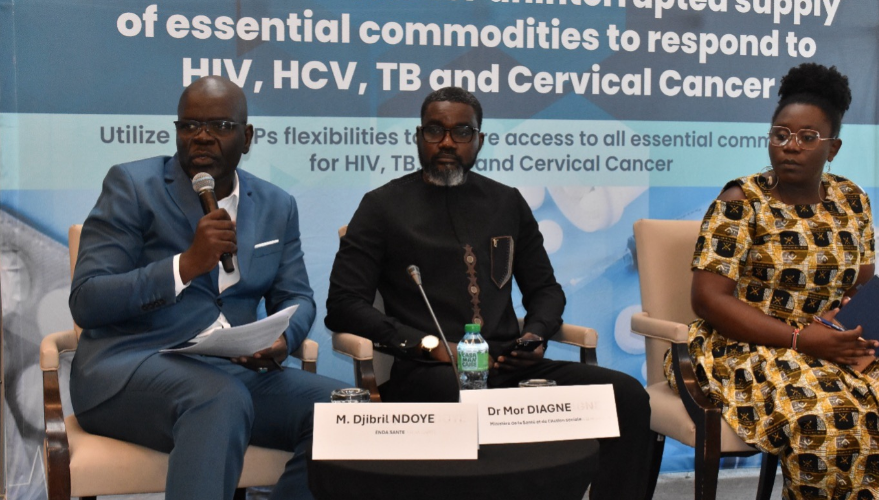Why State, CSOs should collaborate better
While the projects may meet donor requirements, they may fail to address the needs
Experts say this, coupled with the shrinking civic space, is threatening sustainability of essential programmes
In Summary

Audio By Vocalize

Civil society organisations have been urged to rethink their funding and delivery of healthcare services, following the growing financial pressures.
Experts say this, coupled with the shrinking civic space, is threatening sustainability of essential programmes.
The push comes amid global funding cuts and supply chain disruptions that have left millions at risk of losing access to life-saving medicines.
The concern was at the centre of a national workshop held in Dakar, Senegal, on July 30. It was convened by the Kenya Legal and Ethical Issues Network on HIV and AIDS (Kelin), in partnership with Enda Santé and supported by ITPC Global.
The meeting brought together community-based organisations, health policymakers and legal experts to assess challenges facing medicine access and to chart solutions for sustainable health systems in Africa.
“This conversation could not have come at a more critical time,” Kelin said. “With global aid shrinking and civic space narrowing, the sustainability of public health programmes is under serious threat. Civil society must diversify its funding sources and more importantly, use data to implement targeted, evidence-based interventions.”
The workshop highlighted the deepening crisis in countries such as Senegal and Kenya, where health programmes have long relied on international aid.
Recent reductions in funding from USAID and the US's withdrawal from the World Health Organization have added a new strain.
At the same time, ongoing global shocks — including the COVID-19 pandemic, the war in Ukraine, climate change and inflation — continue to expose vulnerabilities in medicine supply chains.
“Senegal imports 95 per cent of its medicines and that figure is not far off for Kenya. Our heavy dependence on external supply makes us extremely vulnerable during periods of global instability. We must act now to change course," Kelin said.
In response, the workshop advanced a forward-looking agenda focused on domestic resource mobilisation, strengthening local pharmaceutical production.
Senegal Ministry of Health representative Mor Diagne from outlined a three-pronged strategy built around “data-driven analysis, diversified funding and a structured resource mobilisation plan.” Health experts say such an approach could offer a useful model for Kenya and the wider region.
Participants also called for stronger alignment between public health, trade and intellectual property policies. “There must be increased transparency in trade negotiations, a rejection of restrictive IP clauses, and the strengthening of South-South cooperation,” Kelin said.
Critically, the workshop underscored the need for community participation in shaping and monitoring access strategies. “Top-down approaches are no longer viable. Communities must have a say in decisions that affect their lives and health,” one participant said.
As Kenya faces mounting challenges in its own health sector — including stalled HIV and TB programmes and unreliable medicine supplies — the message from Dakar resonates strongly.
“The tools for achieving pharmaceutical sovereignty are available. What we need now is collective action, political will and bold reforms," Kelin said.
While the projects may meet donor requirements, they may fail to address the needs